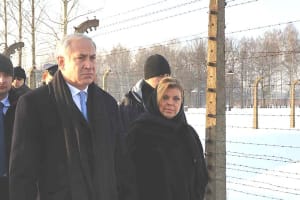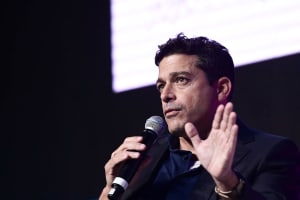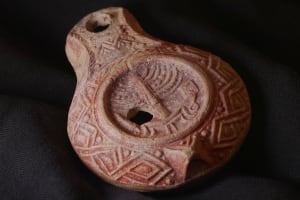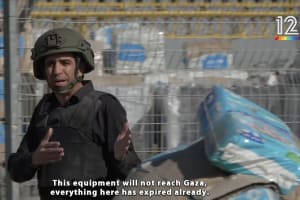Lessons from Fiddler on the Roof

The musical Fiddler on the Roof is an emotional display of romance, sorrow, tradition, and joy in a small Russian village. Offering a glimpse into the Russian Jewish culture of 1905, the movie script and songs brim with the stories of Tevye the milkman, Golde his wife, and their five daughters. The matchmaker, rabbi, and poor families had strong hearts, hopes, and humor as they lived in a robust way based on their Jewish faith.
Amid these unforgettable songs, romances, and dancing the hora, it is sometimes easy to forget that the 1971 Fiddler on the Roof movie is based on the true stories of the Russian czar’s Cossacks—and the attempts to destroy the Jewish culture and its people.
The Cossacks were a quasi-military force that guarded borders and performed police duties. Remember the movie scene where they violently broke into the joyous wedding celebration of one of Tevye’s daughters? Last week, on the night of November 7, 2024, Jew-hating violence broke out in Amsterdam—violence that has been, and is, spreading more aggressively in Europe.
This time, it’s not the Cossacks on horseback of 120 years ago but murderous Muslims, using knives, car rammings, beatings, and throwing Jews into the canals. Their well-organized plan against Israeli soccer fans meant the new Nazis were waiting as Israelis exited a match between Ajax Amsterdam and Maccabi Tel Aviv. Miraculously, no Israeli was murdered, but Israel called it a pogrom, and that is exactly what it was.
What is a pogrom? This Russian word means “to wreak havoc, to demolish violently”—particularly in the context of local attacks on Jews. The term pogrom originated during the Russian Empire and became commonly used in anti-Jewish riots from 1881 to 1884, starting after Tsar Alexander II was assassinated. The term was first used in English in 1882.
Non-Jewish Cossacks and local populations planned and conducted deadly attacks up though the 1917 Bolshevik Revolution. Tens of thousands of Jews were murdered between 1918 and 1920. Between 1881 and 1924, massive waves of Jewish refugees fled Russia and Europe for America, which they called “the Golden Land.” Arriving by ship, they first sailed past the iconic Statue of Liberty and disembarked onto Ellis Island for processing.
My husband Paul is a proud first-generation American because each of his parents fled Russian pogroms as children with their parents. They walked into freedom through Ellis Island. His parents later met and married in Bronx, New York, worked hard, and raised five children. His father served in World War II, drove a taxi, and ran a newspaper stand in Manhattan. His parents rarely if at all spoke about the old country, but Paul remembers his mother describing her fear-filled childhood—hiding in haystacks to escape pogroms against Jews. Our family has watched Fiddler on the Roof countless times since Paul adopted it as his family’s story.
In 1903, a tablet with Emma Lazarus’s words in her poem, “The New Colossus”—“Give me your tired, your poor, your huddled masses yearning to breathe free”—was affixed to the Statue of Liberty’s base. Lazarus is considered America’s first Jewish-American poet. Patriotic songs in Yiddish also expressed the immigrants’ love and loyalty. A popular song from the bygone era was raised by the Jewish voices of new arrivals, which included his parents. The opening lyrics proclaim, “To express loyalty with every fiber of one’s being, to this Land of Freedom, is the sacred duty of every Jew.”
Now, in response to the Amsterdam attacks in the Netherlands, Israeli Prime Minister Benjamin Netanyahu aptly called them a pogrom and sent civilian planes to rescue over 2,000 Israeli citizens. Christians in the USA and worldwide would do well to listen to Netanyahu’s warnings: “Attacks of this kind threaten not only Israel but endanger the entire world.” He commented on historical proof that “Wild attacks that start against Jews, never end with the Jews.”
He emphasized that free nations face the same savage murderers seeking to “destroy our common civilization and return all of us to a dark age of tyranny and terror.”
In the famous movie, Tevye himself gave intriguing comments in an answer about his home village. “A fiddler on the roof! Sounds crazy, no? But here, in our little village of Anatevka, you might say every one of us is a fiddler on the roof trying to scratch out a pleasant, simple tune without breaking his neck. It isn’t easy. You may ask, ‘Why do we stay up there if it’s so dangerous?’ Well, we stay because Anatevka is our home. And how do we keep our balance? That I can tell you in one word: tradition!”
And biblical tradition is immersed in facts that Jews are God’s chosen people and Israel is His chosen Land—the birthplace of our Savior and our Christian faith. In Fiddler on the Roof, pogroms forced Tevye to flee from Anatevka, an example of centuries of Jewish dispersion living in other homes and lands across the world.
After Israel announced its modern independence on May 14, 1948, the Jewish people have been returning in record numbers to their ancestral homeland. This massive wave of Aliyah—the immigration of Jews to Israel—was clearly foretold by the ancient prophet Ezekiel, who, writing at the time of the Babylonian captivity, proclaimed this message: “For I will take you out of the nations; I will gather you from all the countries and bring you back into your own land. … Then you will live in the land I gave your ancestors; you will be my people, and I will be your God” (Ezekiel 36:24, 28 NIV).
The modern State of Israel echoes a message that Prime Minister Benjamin Netanyahu declared when he spoke at the United Nations General Assembly on September 27, 2024. “Generations after generations in which our people were slaughtered, remorselessly butchered, and no one raised a finger in our defense, we now have a state. We now have a brave army, an army of incomparable courage.”
He referred to the book of Samuel about Israel defending itself, affirming: “The eternity of Israel will not falter. In the Jewish people’s epic journey from antiquity and our odyssey through the tempest and upheavals of modern times.” And in conclusion: “The torch of Israel will forever shine. … The people of Israel live now, tomorrow, and forever.”
To be sure, Tevye the actor and Netanyahu the prime minister both expressed the vibrant spirit and strength of the Jewish people. In God’s plans, the pogroms will end!
This article originally appeared here and is reposted with permission.
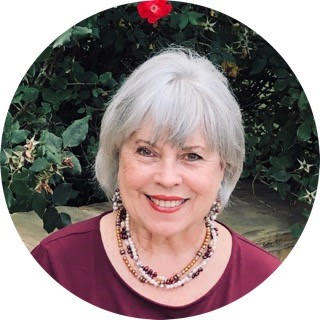
A speaker and consultant, Arlene Bridges Samuels authors the weekly feature column for The Christian Broadcasting Network/Israel on their Facebook and Blog since 2020. Previously she pioneered Christian outreach for the American Israel Public Affairs Committee (AIPAC). Retiring after nine years, she worked part-time for International Christian Embassy Jerusalem USA as Outreach Director for their project, American Christian Leaders for Israel (ACLI) Arlene is an author at The Blogs-Times of Israel, often traveling to Israel since 1990. By invitation she attends the Israel Government Press Office (GPO) Christian Media Summits as a recognized member of Christian media worldwide. Read more of her articles at CBN Israel blog. Arlene and her husband Paul Samuels have coauthored a book, Mental Health Meltdown, illuminating the voices of bipolar and other mental illnesses. On Amazon


